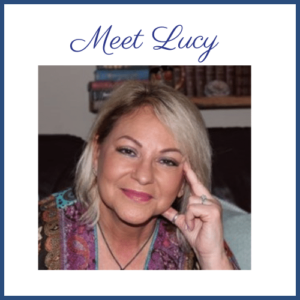Many women with lobular breast cancer have found LBCA after they were diagnosed. They want to help build a community among peers, to share the most current information about invasive lobular carcinoma (ILC) detection, treatment, and clinical trials, and to raise awareness about this common yet understudied breast cancer subtype that needs more research. Sharing their stories is one of those ways.
Meet Lucy
It was 2003. I was living in California and working in project management when I first discovered a pea-size lump in the outer quadrant of my right breast during a self-examination. 
I called my doctor, and they saw me later that day. A mammogram with a lead BB in place found nothing, nor did an ultrasound.
Several days later, I was told it was a fluid-filled cyst and it would need to be drained if it got bigger. In fifteen months, the ‘cyst’ is the size of a large lime, and the surrounding skin is extremely itchy. My family history of breast and ovarian cancer had everyone concerned. The second mammogram still showed nothing, but the ultrasound images displayed a large black mass with tentacles. A week later, a core needle biopsy, and nine days later, the results – breast cancer. An impersonal phone call from my doctor brought me to my knees.
I was forty-seven. Medical treatments led to a pause in my full-time work and my night school classes that I had been taking in pursuit of changing careers. My tumor was 7x6x3 cm and seven out of nineteen lymph nodes removed were cancerous. It was then I learned about Invasive Lobular Carcinoma. A double mastectomy, aggressive chemo, and radiation began two months later. Limited information was available about ILC at that time. My oncologist did a fellowship geared toward ILC, so I was lucky to find her.
ILC presents differently. It is often mammographically occult and with dense breast tissue, additional scans are needed if you have a detectable lump.
I wondered, were there other women who, like me, were unaware of ILC? For the next seven years, I did workshops in inner-city high schools to share my story and educate young girls on all breast cancers. Silicone breast models were used to demonstrate how to do a breast exam correctly, stressing the importance of knowing their bodies. We advised them: “If they find a lump, tell someone. If they are unsatisfied with their doctor’s answers, get a second opinion. Take their health into their hands and become health advocates for themselves.” I encouraged everyone to share this information with all their female friends and relatives. I even wrote a book on understanding breast cancer at the encouragement of students.
LBCA came into existence in 2016, thirteen years after my diagnosis. I finally had a place to go to learn more about ILC.
The most frightening information I learned was that ILC can metastasize in different parts of the body, besides the lung, bone, or brain, and may take years to show up.
My advice to anyone facing an ILC diagnosis: Your healthcare team must ideally have experience in treating ILC. There are not yet ILC-specific treatments but the knowledge you have about ILC can still help you talk with your team about the best treatment for you. Ask about different treatment options and stay positive.
I celebrated 20 years of no evidence of disease this past May. I haven’t let the diagnosis of cancer define who I am. There is life after a breast cancer diagnosis. Go out and live your dreams, each day is a new beginning.
Are you interested in telling others about your own lobular breast cancer story? Please email communications@lobularbreastcancer.org to request more information on how to submit your story. For more information about lobular breast cancer or to make a gift visit lobularbreastcancer.org.

